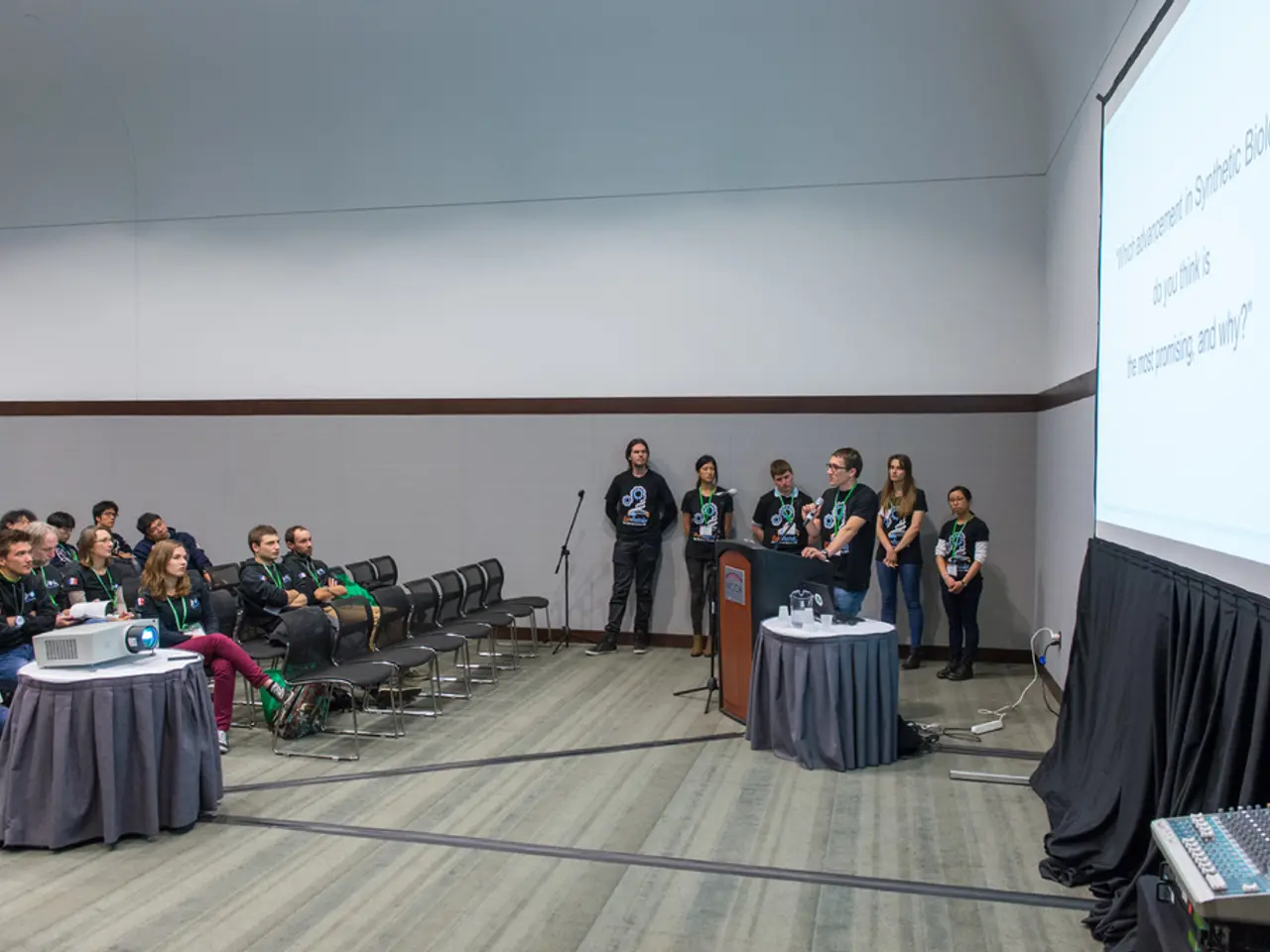Microsoft Teams reintroduces the Metaverse concept with Immersive Events: A look at the anticipated features
Microsoft has recently unveiled a new feature for its Teams platform, called Immersive Events. This innovative addition aims to revolutionize virtual meetings by embedding 3D events directly within Teams, providing users with a more engaging and interactive experience.
The Immersive Events feature allows users to connect in a 3D digital space, complete with spatial audio and avatars, creating a sense of being physically together. This enhancement enables natural conversations, multiple small group discussions, and spontaneous interactions that mimic face-to-face meetings.
One of the key advantages of Immersive Events is its seamless integration within Teams. Users can access the feature using familiar tools, which lowers the barrier for enterprise adoption and eliminates the need for separate platforms or IT overhead.
Organizers can launch and personalize events with no-code tools, supporting branded and engaging hybrid events like town halls, celebrations, or product launches. Participants can join from various devices, including PCs, HoloLens, or VR headsets like Meta Quest, using Microsoft's Mesh platform, enabling mixed-device collaboration in one virtual space.
Microsoft offers three different environments for immersive events: Cascades, Oasis, and Canvas. Cascades is a virtual stage with tiered seating ideal for presentations, complete with a social area featuring icebreaker activities and conversation prompts. Oasis, on the other hand, is designed for larger team meetings, while Canvas is a plain room designed for creators and hosts to customize the space as they see fit.
Each user in Immersive Events has a virtual avatar to attend events. Users can customize their avatar when they join a meeting for the first time, and hosts can customize the space without needing to code.
Before the global pandemic, the metaverse was a major focus in tech. However, as people returned to offices and in-person meetings became common, the metaverse was talked about less. Notable tech companies have since shifted their focus to AI. However, Microsoft's commitment to the metaverse remains evident with the introduction of Immersive Events.
In contrast to traditional virtual meetings, which often lack the casual conversations that occur during in-person meetings, Immersive Events place a strong emphasis on spatial audio to help retain these conversations. This feature transforms Teams meetings from traditional audio/video calls to rich, spatially-aware experiences that simulate physical presence, foster deeper connections, and enhance collaborative networking in hybrid work environments.
To create an immersive event in Teams, users can follow a step-by-step process outlined in a support document. This document also includes steps for customizing the banner image in attendee email invites and publishing the event.
Facebook's parent company rebranded to Meta in 2021 due to its commitment to the metaverse. As more companies follow suit and invest in immersive virtual experiences, it's clear that the metaverse is set to play a significant role in the future of virtual collaboration.
- Microsoft's latest Teams platform update, Immersive Events, embeds 3D events, using spatial audio and avatars, for a more engaging virtual meeting experience.
- Users can access the Immersive Events feature using familiar tools, such as PCs or laptops, lowering the barrier for enterprise adoption.
- Organizers can personalize events on Teams using no-code tools, supporting branded and engaging hybrid events like town halls, celebrations, or product launches.
- Microsoft offers three different environments for immersive events: Cascades, Oasis, and Canvas, each designed for specific purposes like presentations, larger team meetings, and customization by creators or hosts.
- Each user in Immersive Events has a virtual avatar, customizable at the first meeting, and hosts can customize the space without needing to code.
- As more companies invest in immersive virtual experiences, the metaverse is set to play a significant role in the future of virtual collaboration, with Microsoft's Immersive Events leading the way in this transition.




